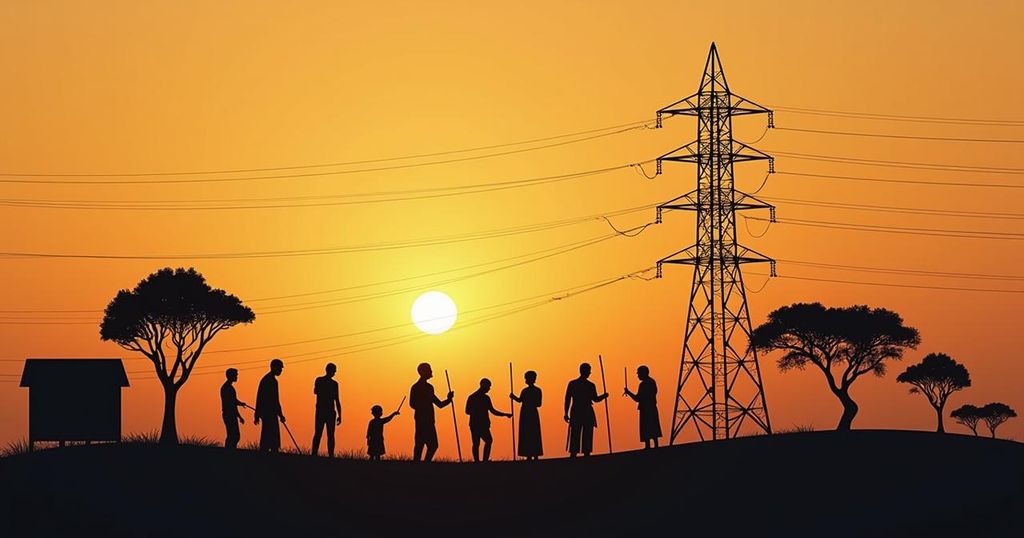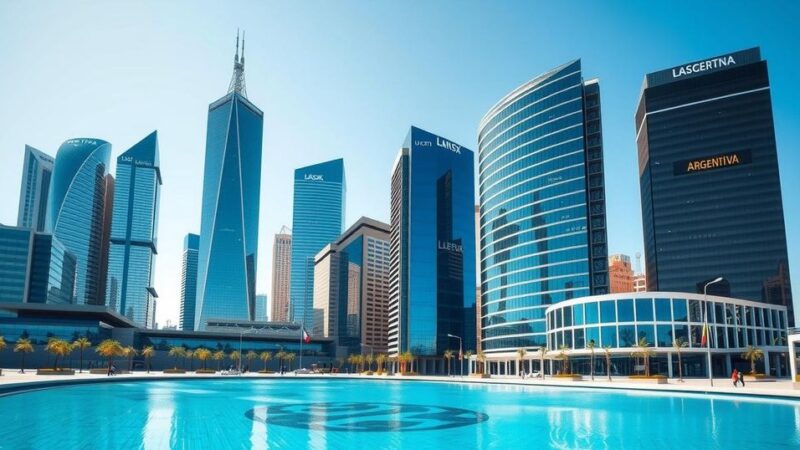Solar power companies are rapidly expanding in Africa, particularly in Sierra Leone and Liberia, where millions lack electricity. Products range from affordable solar lamps to comprehensive home systems. Companies like Easy Solar and Altech are at the forefront of this movement, addressing severe energy shortages and promoting sustainable living solutions. Despite progress, an urgent need remains for increased investment to achieve universal electrification by 2030.
In recent years, solar power companies have emerged as some of the fastest-growing businesses in Africa, particularly in regions where nearly 600 million individuals lack electricity. In Sierra Leone and Liberia, where electrification rates are among the lowest in West Africa, companies like Easy Solar provide essential solar-powered solutions to impoverished households. These products vary from portable solar lamps, which facilitate nighttime study for children, to comprehensive systems for household appliances and entertainment. The World Bank reports that approximately 220 million people in West Africa live without reliable access to power, making these solar innovations crucial to combat reliance on hazardous fuels such as kerosene. The International Energy Agency underscores the necessity for increased investment in renewable energy to ensure that all African homes and businesses have electricity by 2030. The global commitment to tripling renewable power generation capacity by 2050 highlights the importance of such initiatives, especially given Africa’s minimal contribution to global carbon emissions. Various companies exemplify this growth, including Easy Solar, which has electrified over a million residents since its inception in 2016. Co-founder Nthabiseng Mosia, who experienced the challenges of frequent power outages in Ghana, identified a significant market opportunity for solar energy solutions in underserved areas. The company primarily operates through a network of local agents across Sierra Leone and Liberia, focusing on reaching the most remote communities. Similarly, Altech, a solar provider in the Democratic Republic of Congo, has also experienced remarkable growth, offering access to solar power where fewer than 20% of the population is connected to the grid. Co-founders Washikala Malango and Iongwa Mashangao, shaped by their own experiences in a refugee camp, launched Altech in 2013 to address energy shortages and have since successfully provided over a million solar products, emphasizing the profound impact that accessible power has on local communities.
Access to electricity remains a significant challenge across Africa, with Central and West Africa particularly affected by some of the lowest electrification rates globally. The World Bank reports that this region houses approximately 220 million individuals without power, leading many to rely on costly and hazardous alternatives such as kerosene. In response, local solar power companies have stepped in to provide sustainable and affordable energy solutions. This trend aligns with broader global initiatives aimed at increasing renewable energy capacity, with the potential to dramatically improve living standards, enhance educational opportunities, and foster economic development in some of the world’s most impoverished regions. The significance of solar energy in addressing these chronic issues positions it as an essential focus for investment and development efforts moving forward.
The expansion of solar power companies in Africa represents a crucial step toward addressing energy poverty and improving quality of life for millions. This sector has the potential to transform communities by providing stable and safe electricity. Despite the progress made by companies like Easy Solar and Altech, substantial investment is necessary to ensure that every African household has access to reliable power by 2030. As these enterprises continue to grow, they hold the promise of a brighter, more electrified future for the continent.
Original Source: www.washingtonpost.com






